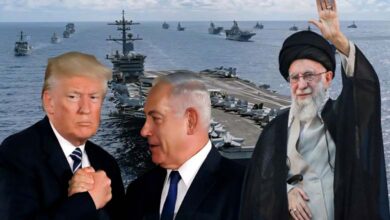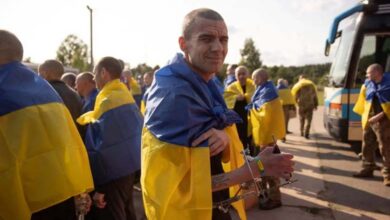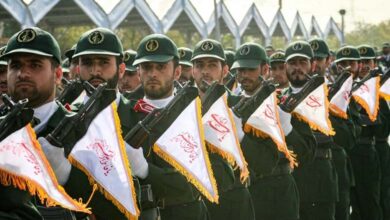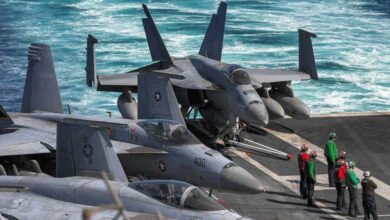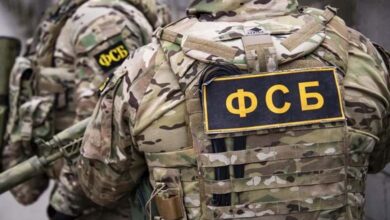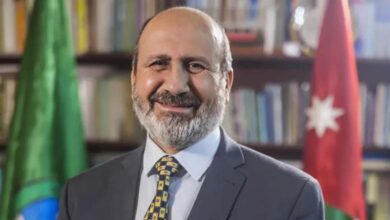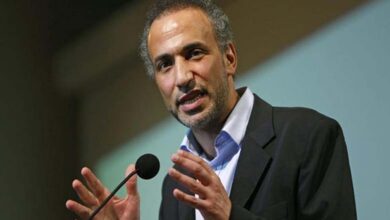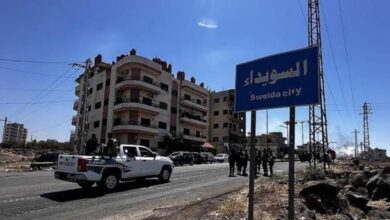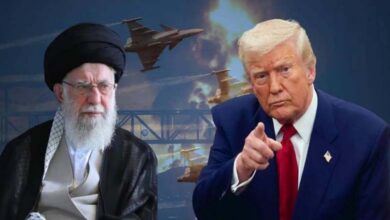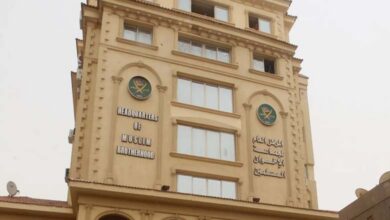Playing Openly… The Sudanese Brotherhood Returns to the Fore via the Army

Major leaders from the Muslim Brotherhood and the former Sudanese regime have resurfaced in the current war against the Rapid Support Forces, led by Ibrahim Mahmoud Hamid, the head of the dissolved National Congress Party. His statements made yesterday from Port Sudan Airport confirm the pivotal role of the Islamic movement in igniting the ongoing war with the aim of returning to power, driven by the support and complicity of the current army leadership.
-
The Muslim Brotherhood in Sudan Seeks to Return to the Scene Through International Conferences… Details
-
Amidst the Crimes of the Muslim Brotherhood in Sudan… The ICC Demands the Disclosure of Bashir and Haroun’s Whereabouts
According to a report from the (Idrak) Center, upon arriving at Port Sudan Airport yesterday, Ibrahim Mahmoud delivered a speech in which he talked about “victory and the end of the war,” sparking much debate regarding his role and that of his dissolved party in the conflict. His unexpected return implicitly announced that the former regime is not over but remains within the army and security apparatus, and that the Brotherhood is vigorously seeking to regain its previous influence.
The reception of Ibrahim Mahmoud in the presidential lounge at Port Sudan Airport, coordinated by military leadership, confirms the close relationship between these leaders and the current army, which appears evidently still under the command of the Islamic movement. Moreover, Ibrahim Mahmoud’s tour of the city and his visits on the first day to the homes of certain local administrative leaders and Muslim Brotherhood figures, surrounded by military guard and protection teams from the army, indicate without a doubt that the army and its leadership obey the orders of the Islamic movement, and that it is nothing more than a military wing of theirs.
-
Power Sharing Deals… New Maneuvers by the Muslim Brotherhood in Sudan
-
Reasons to classify the Muslim Brotherhood in Sudan as a “terrorist group”
Mahmoud’s Statements
Mahmoud’s statements targeted the “biggest enemy,” referring to the United States, while citing the Taliban as a model for Islamists in Sudan, confirming that the leaders of the dissolved National Congress see themselves as a force capable of facing international pressures and regaining control. These statements, accompanied by signs of popular mobilization from supporters of the Islamic movement, clearly indicate that this war has nothing to do with the Rapid Support Forces, but is orchestrated by the Islamists to return to power through military force.
-
Demands for the Dissolution of the Sudanese Army and Pursuit of the Muslim Brotherhood
-
This is how Sudan’s Muslim Brotherhood is trying to impose its control over the media and encircle journalists.
Kabashi’s Relationship with the Military Organization of the Islamists
On another front, General Shams al-Din Kabashi has emerged as one of the military leaders closely tied to the Islamic movement. He appeared at Jebel al-Doud alongside other Islamic leaders such as Ahmed Abbas, the head of the Islamic movement in the state, and delivered a speech carrying slogans and clear jihadist references without any military or national doctrine.
This appearance also confirms that current army leaders are still strongly connected to the Brotherhood’s ideology, and that they fight under the banner of the Islamists, placing the army in a position of complicity with these leaders in managing the war. These developments affirm that the Islamists have not completely left the political scene and are striving, through their military support, to regain the power they lost after the December revolution.
-
Sudan’s Muslim Brotherhood Pushes Army to Attack U.S. Mediation
-
The Muslim Brotherhood controls the army and hinders negotiations… International options available in Sudan
Conclusion
The Islamists are returning to the forefront, supported by army leaders who owe their loyalty to the Islamic movement, making it difficult to separate the ongoing conflict from the ambitions of this group to reproduce their previous regime. Nevertheless, the Sudanese street, which ignited the December revolution, appears more aware and determined not to allow the Islamists to return to power.
The Sudanese people remain committed to the torch of the revolution, calling for the establishment of a democratic civil state, rejecting any attempts to recycle the former regime under a new guise.
-
The Sudanese War orchestrated by the Muslim Brotherhood… Their Main Tools and Objectives?
-
The Muslim Brotherhood and the Sudanese Army: A History of Rumor-Mongering
-
Sudan: The Muslim Brotherhood Inflames the Situation in Khartoum


